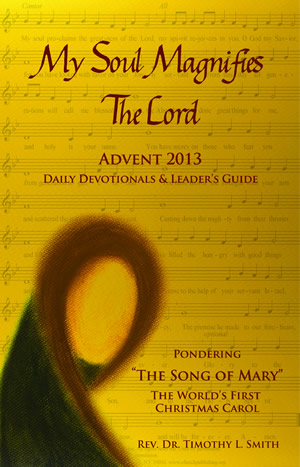
Luke 1:46-50
Filled with the Holy Spirit, Elizabeth twice declared Mary as blessed: “Blessed are you among women… And blessed is she who believed that there would be a fulfilment of what was spoken to her by the Lord” (Luke 1:42, 45). Two thousand years of human history makes the same judgment about Mary: she is blessed. We speak of Mary’s blessedness every time we read these words of Luke’s Gospel, and every time we recite the creeds about Christ being “born of Mary”. Despite Mary’s lowly humility she is blessed, and her prophecy stands to the end of time: “Surely, from now on all generations will call me blessed”.
Remarkably, Mary’s word “blessed” is the very word Jesus will use in the Sermon on the Mount to describe life in God’s Kingdom: “Blessed are the poor in spirit…Blessed are those who mourn…Blessed are the meek” (Matthew 5:3ff.). It might be worthwhile to imagine conversations that Jesus and Mary must have had about the life that is truly blessed by God.
The world misreads the meaning of “blessed” when thinking of it as the subjective state of merely being happy. Happiness by definition is dependent on what “happ-ens” (Old Norse). But to be blessed by God transcends whatever happens, and is to be the object of God’s special favor.
Mary says that she is blessed “for the Mighty One has done great thing for me”. We count Mary as blessed, not because she had done great things for God, but because God has done great things for Mary. That is the reason for the praise Mary offers. Martin Luther writes concerning Mary’s blessedness:
Note that she does not say men will speak all manner of good of her, praise her virtues, exalt her virginity or her humility, or sing of what she has done. But for this one thing alone, that God regarded her, men will call her blessed (“The Magnificat”, Luther’s Works).
Mary sees God’s favor shown to her as one more example of the way God is. God shows mercy to the lowly Mary, but not just to her, for “His mercy is on those who fear him from generation to generation”. God acts with mercy to all who fear or reverence Him to all the generations. God favors each one of us who turn and look to Him.
One day as Jesus was teaching and working miracles, a woman in the crowed cried out and blessed Mary: “Blessed is the womb that bore you and the breasts that nursed you!” But remarkably Jesus replied: “Blessed rather are those who hear the word of God and obey it” (Luke 11:27-28).
We join with the generations in esteeming Mary blessed and favored by God in bearing and caring for His Son. This is our God, a God who shows mercy through all the generations to those who hear and obey His Word.
PONDERING
- Note that in today’s text Mary says of God, “holy is his name”. Ponder below the words of the prophet Isaiah and a connection Mary makes between God’s name as “holy”, and her humble state:
For thus says the high and lofty one who inhabits eternity, whose name is Holy: I dwell in the high and holy place, and also with those who are contrite and humble in spirit, to revive the spirit of the humble, and to revive the heart of the contrite (Isaiah 57:15).
Is there anything you want to say to God about Isaiah’s words?
- Try and imagine a conversation between Mary and boy Jesus about the words He will later speak in the Sermon on the Mount: “Blessed are the poor in spirit…Blessed are those who mourn…Blessed are the meek”.



